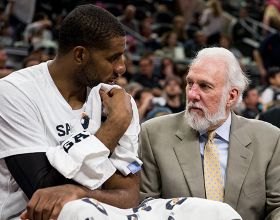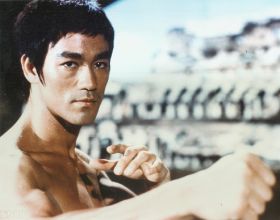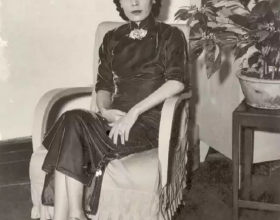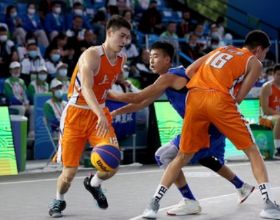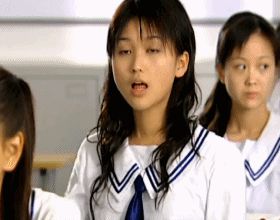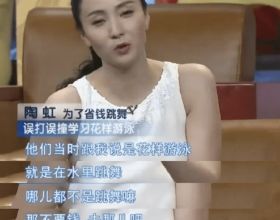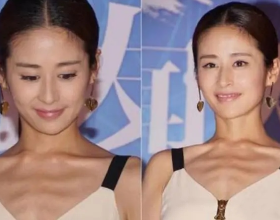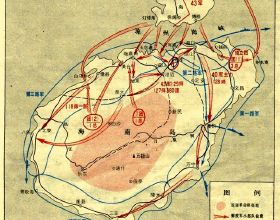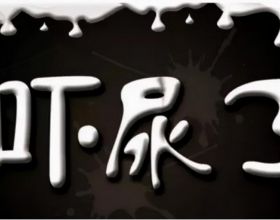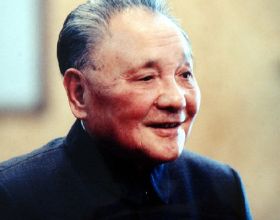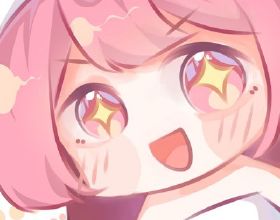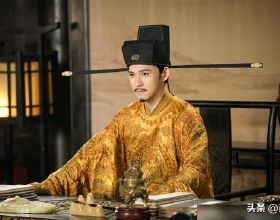馬哈穆德(Mahmoud Alsalehi)在病區監護室瞭解患兒術後的恢復情況
日前,一名出生僅8天,體重剛滿3公斤的女嬰,就被確診為複雜先天性心臟病,經過天津泰達國際心血管病醫院專家團隊經皮肺動脈瓣球囊擴張成形術的介入治療,女嬰已經康復出院。這也是天津市接受該手術治療體重最輕的一名新生兒。
產檢時,醫院超聲科醫生和兒童心臟內二科主任兼兒童ICU主任馬哈穆德 (Mahmoud Alsalehi),共同對胎兒進行了詳細心臟超聲評估,結果顯示未出生的胎兒患有複雜先天性心臟病——肺動脈瓣重度狹窄。
泰心新生兒轉運團隊在分娩當天攜帶先進的專業裝置守候在產房,女嬰出生後,馬哈穆德及生產醫院的新生兒科醫生共同為她進行超聲檢查並評估心臟及身體狀況。負責胎兒轉運的一名泰心醫院醫生表示,對於這種極重度肺動脈瓣狹窄的患兒,由於沒有足夠的血液透過肺動脈瓣到達肺部,因此無法維持肺迴圈。其目前存活依賴的是胎兒期就存在的動脈導管,一旦動脈導管關閉,患兒的生存機率幾乎為零。
為了儘快讓女嬰接受治療,泰心醫院立即組成了專家團隊。
在女嬰出生第8天,醫院就為患兒進行介入治療。由於其心腔及血管都特別“袖珍”,要求醫生從穿刺、置管、上導絲到測壓、造影,每一步必須操作得十分精準。
經過康復治療,女嬰順利出院。看到孩子各項生理指標都恢復正常,她的父母終於放下了懸著的心:“這孩子得到了中外醫生護士的全程關注,每個給予她幫助的大夫護士都是我們全家的貴人。”
專家團隊的一員馬哈穆德來自巴勒斯坦,2019年8月來到泰心醫院兒科工作。“同事們叫我‘老馬’,病房的孩子們叫我‘老馬叔叔’,這種感覺很親切。”
在泰心醫院的病區監護室,時常會看到“老馬”的身影,他輾轉於患者床位之間,對每位患兒的術後恢復狀況進行全面診斷。
在加拿大多倫多兒童醫院培訓期間,馬哈穆德透過該院與泰心醫院的合作專案,獲得了來天津交流的機會。他說,這裡的醫護人員對他很熱情,他們認真敬業的工作態度也給他留下了深刻印象。在加拿大培訓結束後,他欣然加入了泰心醫院。
術前會診、制定手術計劃、術後查房、進行心臟超聲諮詢……在泰心醫院醫護團隊的幫助下,馬哈穆德很快融入了中國團隊,認真為每位入院的患兒安排一對一的診療計劃,並參與手術方案的制定。
“我每天都要和中國同事們一起,對醫院患兒的情況進行溝通探討,他們對待工作很勤奮、很認真。”馬哈穆德說,“我經常開玩笑說,他們就像‘馬達’一般,工作起來永不停歇,不過我很欣賞這樣全心全意為患者付出、著想的醫護人員。”
因疫情影響和ICU病房的特殊性,家屬不能探視患兒。為了避免患兒可能產生的孤獨感和焦慮情緒,醫護人員開發了各種“哄娃神器”,使他們在治療過程中放鬆心情,促進身心康復。
“我會透過微笑和眼神,以及簡單的中文交流來表達善意。我們雖然語言不通,但我會把他們當作自己的孩子一樣看待。漸漸地,孩子們會放鬆心情,並主動配合。”馬哈穆德說。
馬哈穆德的溫柔和耐心讓病房的患兒們很喜歡這位“老馬叔叔”。他的辦公桌上擺著一束花,這是不久前出院的一位8歲患者送給他的禮物。“小女孩在手術後擁抱了我,一個勁兒衝我微笑,讓我感覺自己像她的父親一般,給予了她溫暖與關愛。”
自2004年起,泰心醫院與全國多地的民政部門和慈善組織合作,開展了十餘個慈善專案,覆蓋全國27個省(區、市),在全國範圍內救助了來自貧困地區的1.4萬餘名先天性心臟病患兒。
“我的很多患者都來自這些專案,他們可以透過免費手術收穫健康,過上正常人的生活。”馬哈穆德說,這其中少不了中國同事們的努力付出。
“前往中國偏遠地區進行先天性心臟病患兒篩查很辛苦,他們卻積極主動申請,為脫貧攻堅貢獻一份力量,這種無私和大愛精神讓我很感動。”馬哈穆德說。
在今年2月舉行的全國脫貧攻堅總結表彰大會上,泰心醫院被授予“全國脫貧攻堅先進集體”稱號。“這是對醫院同事們付出的肯定,我也希望能夠克服語言難關,未來跟隨篩查團隊前往中國偏遠地區,近距離幫助更多患者。”
未來,他打算回到自己的祖國,將在中國收穫的經驗學以致用,幫助更多先天性心臟病患兒重獲“心”生。
A newborn was recently diagnosed with complex congenital heart disease. After interventional therapy by medical experts at TEDA International Cardiovascular Hospital in north China's Tianjin Municipality, the young patient got another chance at life.
She was diagnosed with severe pulmonary valve stenosis during a regular pregnancy check.
Immediately after her birth, director of the hospital's Pediatric Cardiology II and Pediatric ICU Department Mahmoud Alsalehi escorted her to an observation room and examined her.
Alsalehi and other doctors found that the girl's disease was life-threatening, as blood was not flowing sufficiently through her pulmonary valve to support her lungs.
The doctors had a meeting and decided that minimally invasive intervention was the best way to treat the newborn baby.
However, the youngest baby to receive this kind of surgery in the city was 1 kg heavier than the only 3-kg baby. The hospital made detailed plans for the surgery in order to take this challenge into account.
The surgery proved successful, as the baby has since been discharged from the hospital, healthy and happy.
"From pregnancy to childbirth to surgery, this child has received the full attention of Chinese and foreign doctors and nurses. I sincerely thank all the angels at this hospital," the child's mother said.
Mahmoud Alsalehi, a 39-year-old doctor who hails from Palestine, now works at TEDA International Cardiovascular Hospital.
Alsalehi sanitized his hands before walking toward the sickbed of a young patient, gently shaking a toy to delight the 1-year-old who just had surgery for congenital heart disease.
When the kid relaxed, Alsalehi leaned down carefully, put a stethoscope on the child's chest, and listened to the child's heart.
As a well-loved doctor by kids, Alsalehi was called "Uncle Lao Ma," a nickname derived from the first syllable of his given name.
"Ma" literally means horse in Chinese, which represents diligence. "I like this name, and it makes me feel very close to the kids," he said.
During his training in a children hospital in Canada, Alsalehi got a chance to work for the TEDA hospital in August 2019.
"I accepted immediately. China is a very close friend to Palestine and helped us a lot. I hope to help more Chinese children with congenital heart disease to give back to China," Alsalehi said.
With the help of Chinese colleagues, Alsalehi soon acclimatized himself to his new working environment.
Shuttling between patients' sickbeds, screening and monitoring their heart conditions, reviewing the echocardiogram and checking their nursing records, Alsalehi and his colleagues are always busy making tailored medical and surgical plans for each child.
"I often joke around and said that my colleagues are like 'motors' that work ceaselessly. I really admire these dedicated Chinese doctors who are considerate to their patients," Alsalehi said.
Due to the COVID-19 pandemic, pediatric patients had to stay in the ICU alone after surgeries. Without their parents' company, they were prone to loneliness and anxiety, a major concern for doctors.
Pediatric doctors including Alsalehi himself racked their brains to console the young patients.
"Even though I cannot speak too much Chinese, I try my best to express my kindness through smiles and eye contact," Alsalehi said, adding that he treated them as his own children.
Since 2004, the hospital has worked with local authorities and plenty of charities to carry out dozens of projects to provide free surgeries for children with congenital heart disease from poor families.
Their surgery expenses are completely covered by charity projects, which have already reached 27 provincial-level regions of the country.
Alsalehi said he hopes to be dispatched to remote regions in China, which were once haunted by poverty, to help kids with congenital heart disease there, like what his colleagues have done for years as part of the country's anti-poverty efforts.
"It would make me happy to see those less-privileged children enjoy a normal life again," he said.
In the future, Alsalehi plans to go back to Palestine and build a professional pediatric cardiology team. "I hope to do something for my people and my country. The experience I gain in China will definitely be useful."
Sources: Xinhua, exploringtianjin.com, 每日新報
【來源:濱城時報】
宣告:此文版權歸原作者所有,若有來源錯誤或者侵犯您的合法權益,您可透過郵箱與我們取得聯絡,我們將及時進行處理。郵箱地址:[email protected]

